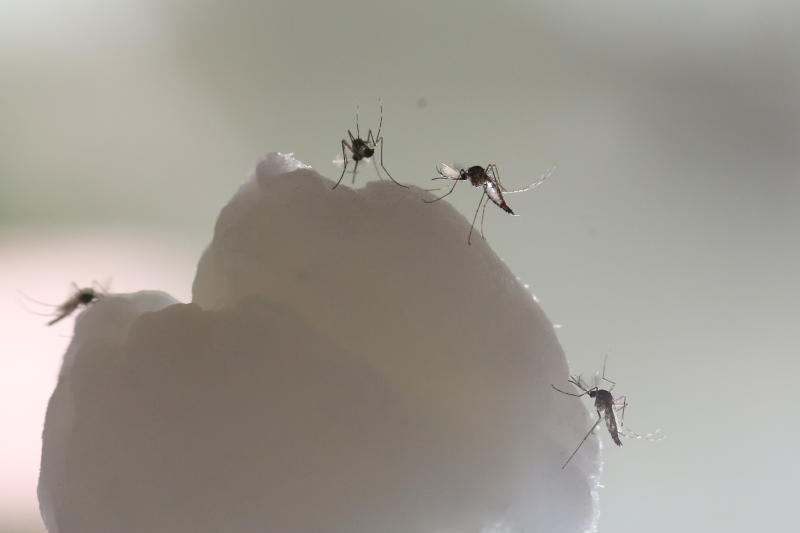Elderly woman dies from dengue fever in third such death this year
Sign up now: Get ST's newsletters delivered to your inbox

The Aedes aegypti mosquito population is the primary species responsible for transmitting dengue and Zika here.
PHOTO: ST FILE
Ng Huiwen
Follow topic:
SINGAPORE - A 71-year-old woman died from dengue fever in March, bringing the total number of deaths related to the illness to three this year.
The woman lived in Ang Mo Kio Avenue 4, which was previously an active dengue cluster.
She died on March 23, a Ministry of Health (MOH) spokesman said on Thursday (April 4).
It was reported in February that two men, aged 74 and 77, had died from dengue fever this year.
One of the deaths took place in an active dengue cluster in Bedok. The other occurred in Hougang.
According to latest figures from the National Environment Agency (NEA) website, there were at least 2,224 cases of dengue fever reported so far this year.
As of Monday, NEA noted that there were 26 active dengue clusters, with the largest clusters located in Woodlands, Teck Whye Lane and Serangoon Gardens.
The Woodlands cluster is made up of Woodlands Circle, Woodlands Crescent and Woodlands Drive 60, while the Serangoon Gardens cluster includes Golden Walk, Tai Hwan Avenue and Tai Hwan Crescent.
A total of 101 dengue cases were reported in the whole of last week, four more than the 97 in the week before.
There were 109 cases reported between March 10 and 16.
The NEA said that its Gravitrap surveillance system had detected about 40 per cent more Aedes aegypti mosquitoes in December last year, compared with December 2017.
Gravitraps are traps that catch such mosquitoes and collect data on them.
"If not reduced, the high Aedes aegypti mosquito population may lead to a surge in dengue cases in 2019," the NEA said.
The agency urged the public to stay vigilant and work together as a community to prevent dengue cases from increasing.
Last year, five people aged 41 to 75 years old died from dengue fever. There were 3,285 reported cases of dengue last year, almost 20 per cent more than in 2017.
Meanwhile, the MOH said that there have been four cases of Zika so far this year.
Two were local Zika virus infections, while the other two were imported cases.
All four people sought outpatient treatment and have since recovered.
The ministry said that sporadic cases of Zika will be detected from time to time, as Singapore is a travel hub and remains vulnerable to the importation of the Zika disease.
"We are also susceptible to Zika virus transmission because it is primarily transmitted to humans via the bite of an infective Aedes mosquito, a common species found locally that also transmits the dengue virus," the MOH spokesman said.
"Singaporeans should remain vigilant at all times and continue to do our part to prevent mosquito breeding in homes and workplaces," the spokesman added.

